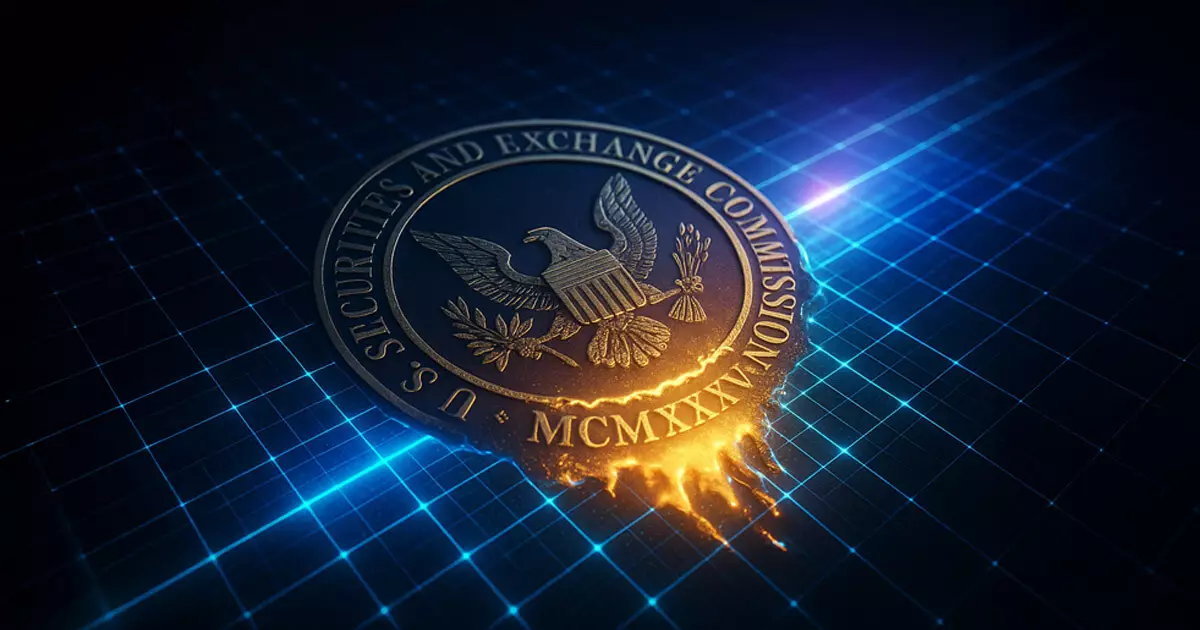In a significant pivot that could reshape the future of digital finance, the U.S. Securities and Exchange Commission (SEC) has announced the withdrawal of 14 proposed rules, particularly those aimed at the cryptocurrency sector. This bold move, made public on June 12, showcases a reduced level of regulatory aggressiveness that characterized the agency under former Chair Gary Gensler. The implications of this shift are profound; as the regulatory landscape begins to morph, it brings both risks and opportunities for a sector that has faced considerable scrutiny.
Understanding the Rationale Behind the Withdrawal
The rescinded proposals, introduced between March 2022 and November 2023, reflect a growing awareness among regulators that overreach can stifle innovation. Crypto advocates have long maintained that stringent regulations could force the industry underground, limiting growth and creativity. One particularly glaring example targeted decentralized finance (DeFi) platforms, seeking to classify them as securities exchanges, thereby entangling them in burdensome compliance demands. The regulators appear to be acknowledging the criticism and recognizing the need for a more manageable approach that fosters innovation rather than limiting it.
Temperature Check on Crypto Custodians
Among the withdrawn measures was a stringent custody rule that would have required investment advisers to secure all client assets with qualified custodians. This shift raises an important question: how can regulators balance consumer protection with the need for accessibility and growth? Not all custodians hold the same weight; many existing crypto custodians would have been eliminated from consideration under the SEC’s proposed criteria, leaving clients with fewer options. The potential outcome? This could have inadvertently pushed crypto transactions away from U.S. institutions and toward foreign entities, heightening risks instead of mitigating them.
The SEC’s Evolving Strategy Under New Leadership
New SEC Chair Paul Atkins is steering the conversation toward a more favorable landscape for crypto. His pro-crypto stance represents a departure from the previous enforcement-driven strategy, which often felt more punitive than protective. With lawsuits against various crypto firms being dropped, it seems as though the agency is awakening to the potential benefits posed by an industry that has long been considered a wild card. This is not merely a regulatory retreat; it is a realization that effective governance can promote responsible innovation and growth.
Implications for the Future of U.S. Crypto Markets
Ultimately, the SEC’s decision signifies a potential new chapter for digital currency in the U.S.—a move towards a balanced regulatory framework that both safeguards investors and encourages market development. As the government refines its objectives, it must establish a robust infrastructure that addresses consumer concerns while allowing for market creativity. Balancing these interests is the real challenge ahead, and the outcome will undoubtedly have repercussions for the entire sector moving forward.
The SEC has a crucial role in determining if the U.S. can become a global leader in digital finance or let this innovative sector slip through the cracks while it wrestles with its own bureaucratic challenges. Frequent reviews and adaptive regulations will define the experiences of countless investors and entrepreneurs alike in this dynamic environment.















